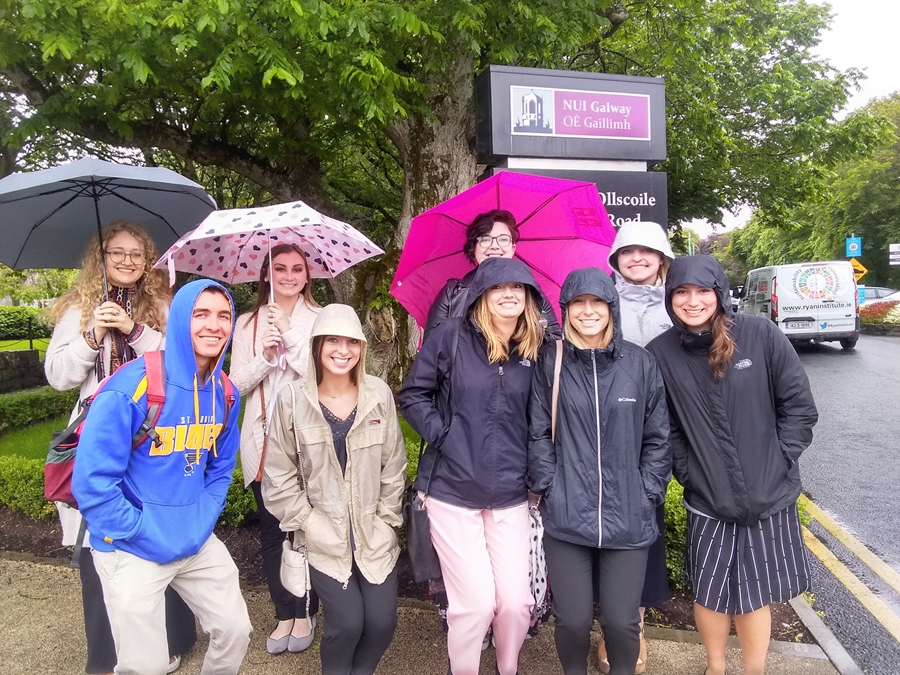
The University of Arkansas' Bachelor of Science in Public Health degree recently became one of the first in the nation to be accredited as a stand-alone baccalaureate program.
This has been one of the fastest-growing undergraduate degrees in the College of Education and Health Professions at the U of A, with over 300 students currently declaring the major.
The program — in the Department of Health, Human Performance, and Recreation — earned accreditation status this month through 2024 from the Council on Education for Public Health, the accrediting body for the discipline of public health.
Until 2013, the council only accredited master's and doctoral degrees, or degrees affiliated with Colleges of Public Health. But a surge of interest by national public health organizations, such as the Institute of Medicine, as well as increasing undergraduate student interest in the discipline of public health, played a role in the new accreditation opportunity.
Bart Hammig, program coordinator of Public Health at the U of A, said having accreditation status helps ensure students are graduating from a quality program, and it will resonate with employers and graduate programs in the public health field which will greatly benefit undergraduate students in terms of their marketability.
Accreditation is an arduous process that involves an in-depth self study of the program, ensuring that the program meets and exceeds defined criteria by the Council on Education for Public Health, and culminating in a site visit by council representatives, Hammig said.
The university's Department of Health, Human Performance and Recreation started the accreditation process in 2016 with adaptations to the public health curriculum.
Hammig said he likes to contrast public health with medicine, where the focus is typically on treating a single patient once they become ill.
"Public health looks to prevent disease and injury and promote health in populations," he said. "In addition, public health aims to change behavior, environments, and policies to make the community a healthier place to live."
Hammig said an important component of the program is an internship experience which is led by Jean Henry, associate professor of community health promotion. Internships provide students with hands-on experiences to plan, implement, and evaluate public health projects with community partners and organizations.
Over the summer, Henry traveled to Ireland with a group of U of A students who are studying public health or have similar majors.
She said the purpose of the trip was to highlight the similarities and differences in inter-professional health care practices within the Irish and American health care systems, while also evaluating the impact of culture on health and health care.
"The trip has a public health focus, allowing students to observe how various professions, including public health educators and administrators, are integrated into Irish health care, to optimize patient care and services," she said.
Henry has led study abroad trips for health professions students since 2010. She started the Belize Community Development Public Health team, then planned and implemented the Health Professions in Ireland program, which launched this year.
Most of the university's public health graduates pursue jobs in governmental public health agencies, hospitals, or non-profit health agencies. Or they may go on to pursue post baccalaureate degrees in public health or other health fields such as physical therapy, occupational therapy, medicine, and dentistry.
"I am very proud of the work Dr. Hammig and the rest of the public health faculty have done to accomplish this prestigious accreditation," said Matthew Ganio, head of the Department of Health, Human Performance and Recreation. "Having this reinforces the fantastic education our faculty are delivering and also complements the university's Signature Research Area 'Enriching Human Health and Community Vibrancy.'
"I look forward to the continued growth of education and research in health at the University of Arkansas. This accreditation is a positive step in that direction," he said.
Hammig said accreditation of the program would not have been possible without Ganio and the college's previous dean, Mike Miller.
"They helped guide and support the program throughout the lengthy accreditation process," he said. "I would also like to thank the public health faculty, staff, community stakeholders, and students who were involved in the process. Without teamwork, this never would have come to fruition."
Topics
Contacts
Shannon Magsam , director of communications
College of Education and Health Professions
479-575-3138,